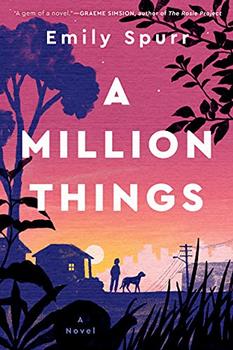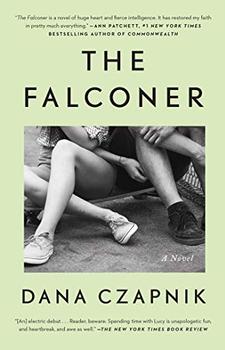Summary | Excerpt | Reviews | Beyond the book | Read-Alikes | Genres & Themes | Author Bio

Lucia Stanton, Jesse Ball's precocious teenage narrator, lives in a converted garage with her ailing aunt. Her father is dead and her mother languishes in a fugue state at a mental hospital, both victims of some never-defined tragic event referred to only as "the thing." Too smart for her own good, Lucia has a delinquent streak. She shoplifts licorice and bounces in and out of schools. Her prized possession is her father's Zippo lighter. When she is expelled for assaulting a classmate, she lands at Whistler High where she meets a kindred spirit and discovers the existence of an "arson club" that piques her interest.
The novel, meant for adults, has crossover appeal for teens as well. Lucia narrates the story in a journal format, relating the minutiae of her day-to-day life, gym class and English writing assignments; visiting her catatonic mother; attending a party at an abandoned water park. There are frequent interruptions in the account as Lucia pauses to explain Cribbage instructions or draw a diagram of her aunt's garden. As such the plot moves slowly, but it is not without tension. Lucia edges forward compelled by contradictory impulses – to take a test for a program at a boarding school for the gifted and make a respectable future for herself, or commit to a life of radical and criminal action to burn the world around her.
Comparisons to The Catcher in the Rye are inevitable and apt. Lucia is Holden Caulfield reborn, with the same disdain for "phoniness" and other standards of judgment typical of teenagers who have not had the life experience that cultivates nuance. Lucia is as quotable as Holden, she remarks that "going to school is terrible and it frightens any right-thinking individual," and dismisses a local college professor by saying "he fraternizes with oligarchs."
The book raises compelling questions about its narrator's reliability and motivations (see 'Beyond the Book'). Is Lucia a sociopath or just a rebellious adolescent? Raised and indoctrinated by anarchists, she sees herself as "the inheritor of [their] ideals." Has she been poisoned by their belief system or is she right to consider arson as a reasonable and even redemptive act? While she is brutal enough to state outright that wealthy people deserve to die, Lucia is also shown to be capable of feeling shame and remorse. But when she defends her acts of violence by saying, "all the time, people basically beg me to freak out on them," she is kind of terrifying.
There are some great moments of absurdity and humor amidst the malaise. Lucia quips about the potential repercussions of identical nonuplets being appointed to the Supreme Court ("essentially you have one person being the whole Supreme Court, for life!") and grapples with the meaning of an essay test question that reads simply: "Why Hitler?"
In essence, How To Set A Fire is a character study. The journal format allows for little development of the supporting cast. Lucia is not without friends, but they are barely sketched in. The plot is minimal so the extent to which you like this book will be determined by how willingly you buy into the cult of Lucia. A radical, violent, self-righteous teenage girl bent on committing arson is, needless to say, not always likable. Salinger's narrator wasn't either, but Holden and Lucia share a similar capacity to fascinate as they spiral down their angst-ridden paths. Unlike Holden, Lucia has an overt political agenda.
The fact that this book isn't sadder is a credit to Jesse Ball's skill and light touch, the narrative never descends into hopelessness, even when it feels like it should. Lucia may be a hard luck case but she is so smart, it's hard to imagine she won't be alright. The reader's wish for her redemption is the book's sustaining force.
![]() This review was originally published in The BookBrowse Review in July 2016, and has been updated for the
July 2017 edition.
Click here to go to this issue.
This review was originally published in The BookBrowse Review in July 2016, and has been updated for the
July 2017 edition.
Click here to go to this issue.

If you liked How to Set a Fire and Why, try these:

by Emily Spurr
Published 2021
Winner of the 2021 BookBrowse Debut Award
A soaring, heartfelt debut following fifty-five days in the life of ten-year-old Rae, who must look after herself and her dog when her mother disappears.

by Dana Czapnik
Published 2019
Told in vibrant, quicksilver prose, The Falconer is a coming-of-age story, providing a snapshot of the city and America through the eyes of the children of the baby boomers grappling with privilege and the fading of radical hopes.
I have always imagined that paradise will be a kind of library
Click Here to find out who said this, as well as discovering other famous literary quotes!
Your guide toexceptional books
BookBrowse seeks out and recommends the best in contemporary fiction and nonfiction—books that not only engage and entertain but also deepen our understanding of ourselves and the world around us.